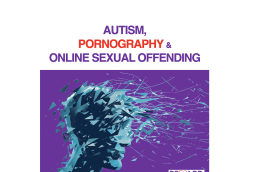The Official Dopamine Nation Workbook- A Practical Guide to Overcoming Addiction in the age of Indulgence by Dr Anna Lembke, Headline press.
This is by far one of the best books available on the market with tools on how to recover from any form of compulsive use of, or addiction to, a substance or behaviour. These include: porn; gaming; gambling; social media; dating apps; junk food; exercise; alcohol; nicotine; energy drinks; and narcotics. This is the missing operating manual for our brain and how to drive it in today’s age of overindulgence.
Dr Anna Lembke is a Professor of Psychiatry at Stanford University School of Medicine. She uses her two decades of experience as a clinician to explain the risks we all face today from overstimulation and overindulgence and ways to control them. This workbook builds on her previous NYT bestselling book “Dopamine Nation- finding balance in the age of indulgence”.
Dopamine is the neurochemical that spurts for novelty, wanting and craving. The reward system is responsible for pleasure and pain, and seeks balance (homeostasis). What goes up, must come down. But when dopamine drops below its baseline, it leaves a user feeling irritable. Over time dopamine stays below baseline making the user anxious and depressed. Abstinence is the best way to get back to normal.
Your Brain on Porn
The book complements Gary Wilson’s ‘Your Brain on Porn- Internet pornography and the emerging science of addiction’. His book was the first to set out what porn addiction looks like and how to overcome it.
“The more dopamine a substance or behavior releases, and the faster it releases dopamine, the more addictive that substance or behavior is.” (p. 43.DN workbook). Internet porn releases huge amounts of dopamine in users given their easy access to endless new short videos that are hyperstimulating.
Lembke reveals her own challenges with erotic romance novels- a favourite form of porn for women. She points out the tell-tale signs of addiction by hiding her use, lying about her use and passing up social occasions to be able to indulge in it. She talks too of her struggles as a mother. Lembke found herself being too worried about her children to actually be present with them and willing to listen to them. Her warm, authoritative book offers a step-by-step guide to quitting damaging behaviours or substances. It’s a must for everyone.
For those who prefer podcasts she’s done an excellent one with Steve Bartlett on Diary of a CEO. He says it is the most important interview he’s ever done. She also appeared with fellow Stanford professor Andrew Huberman in the Huberman Lab.
Public health campaign
Surely this book’s thesis explains the widespread rise in mental health problems across our nation too? If people are self-soothing life’s inevitable stresses with combinations of porn, gaming, social media, junk food, gambling, alcohol, nicotine, shopping, dating apps etc. then the worsening rates of depression and anxiety may be the result of the brain’s adaptation to the bombardment of dopamine through constant stimulation.
It’s easy to blame the government and everyone else when life looks bleak. But how far are we responsible for our own misery? If we’re sure we’re not affected, let’s try experimenting with quitting for a couple of weeks. This makes it easy to see in fact if we are hooked to that particular coping mechanism.
The government would save billions of pounds on the NHS costs if it did a sustained public health campaign around addiction and compulsive behaviours showing how much we can help ourselves.




